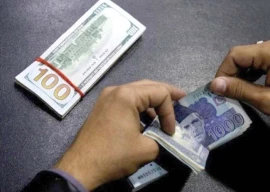
Unlike other revolutions, this one is unique in the sense that its negative impact is not confined to one specific sector, but it alters our physical, digital, industrial as well as economic spheres.
That entails reshaping our outlook. It can redefine what it means to be human through artificial intelligence (AI)-based systems, self-driven cars, computer-dictated neurological responses, reprogramming and genetically engineered DNA for required traits, algorithmic warfare, 5G and what not.
Given the potential of the 4th Industrial Revolution to completely transform the current situation, it can have unnoticed uncertainty in its way. Yet, all this adds up to what has already happened through natural but importantly through anthropogenic changes in the common environment.
Industrialised countries - home to 20% of the total population – account for 60% of CO2 emissions but look reluctant to aggressively tackle climate change. For instance, European nations are unwilling to commit 30% reduction in greenhouse gas (GHG) emissions whereas the US has failed to pass Climate Change Act and has withdrawn from the Paris agreement on climate change.
In comparison, the countries creating less pollution are taking necessary steps, backed by legislation, to fight climate change. These measures include Mexico’s General Law on Climate Change, Kenya’s Climate Change Authority Act, Pakistan’s National Climate Change Strategy, etc.
The contrast in efforts made by the developed and developing nations can be reflected in the fact that a majority of the top 12 countries most affected by climate change are either emerging economies or under-developed nations. Keeping that in view, the industrialised states are least concerned about the impact of climate change around the world.
Owing to the reluctance on the part of industrialised states, Asia – home to about 4 billion people – has experienced a visible deterioration in the environmental and natural resource quality like rising in atmospheric and land-surface temperatures, increase in sea levels, etc and its resultant impact on human health through diseases, deaths, and injuries.
Pakistan is among the top 10 countries on the Global Climate Risk Index 2018 (German Watch). The 2010 floods that submerged a large part of Pakistan as Himalayan glaciers melted at a rapid pace due to global warming, widespread smog in Lahore in winter and heat waves in Karachi are a few examples that call for establishing a new framework to capitalise on the opportunities being provided by the 4th Industrial Revolution and protect the country from its adverse impact.
Lagging behind
Lacking the ability to cope with the fast-changing scenario, it seems from the country’s moves that it is still dealing with the second industrial revolution. At present, we are not ready to keep pace with the emerging 4th Industrial Revolution.
An example in this regard is the Sialkot sports industry that lost the fame it once enjoyed because of its failure to evolve in terms of technological advancement that the global sports industry underwent. Consequently, the share of Sialkot’s sports industry in the global market was mostly grabbed by other countries. Pakistan’s inability to adopt the latest technology is turning the national economy obsolete and the reason behind this is the increasing emphasis on the grade-oriented education system – a contrast to the most famous Scandinavian educational standards. The country has over time ignored the importance of equipping people with technological tools to solve modern problems.
Though recently some appreciable steps have been taken to produce skilled labour than just the educated class, there is a dire need to scout for financial resources, where involvement of the private sector could not be ignored, to lift more people out of poverty.
Although the current government has prioritised environmental protection, which is reflected in projects such as the billion-tree tsunami, this alone is not sufficient to address the issues at hand. No doubt trees can act as sinks for GHG emissions but the focus must also be on the originating points of pollution. The country should fight technology shyness and go for greener and renewable energy programmes.
Keeping in view the above scenario, the government must frame proactive policies and ensure collaboration at regional and global levels where representatives of the private sector can also play their role in making laws and regulations. There are a lot of opportunities to get the benefit from the global expertise and policies. An example could be Rwanda’s drone regulation, devised in partnership with the World Economic Forum as a private external partner, to timely address adverse consequences of the new industrial revolution through consistent assessment and policy prescriptions.
Another example could be the “Smart Mobility 2030” programme of Singapore, which promotes sustainable mobility options such as electric vehicles to slash GHG emissions. Separately, Indonesia provides internet access in remote areas so that the 4th Industrial Revolution positively influences agriculture through enhanced and sustainable production.
On the same lines, extensive and efficient use of technological tools like smartphones and smart dashboards are the need of the hour to disseminate real-time information about weather patterns, technological advancements, improving seed production, etc.
It can be initiated with the concept of a sharing economy by renting out technological tools if they are expensive so that farmers are facilitated extensively. Pakistan can benefit from the opportunities arising from the 4th Industrial Revolution if concrete steps are taken that can secure the common future.
The writer is the Assistant Professor at the Department of Development Studies, School of Social Sciences and Humanities, NUST Islamabad.
Published in The Express Tribune, August 19th, 2019.
Like Business on Facebook, follow @TribuneBiz on Twitter to stay informed and join in the conversation.

1717587923-0/jake-paul-vs-mike-tyson-(1)1717587923-0-165x106.webp)


1725443747-0/Untitled-design-(5)1725443747-0-165x106.webp)












COMMENTS
Comments are moderated and generally will be posted if they are on-topic and not abusive.
For more information, please see our Comments FAQ